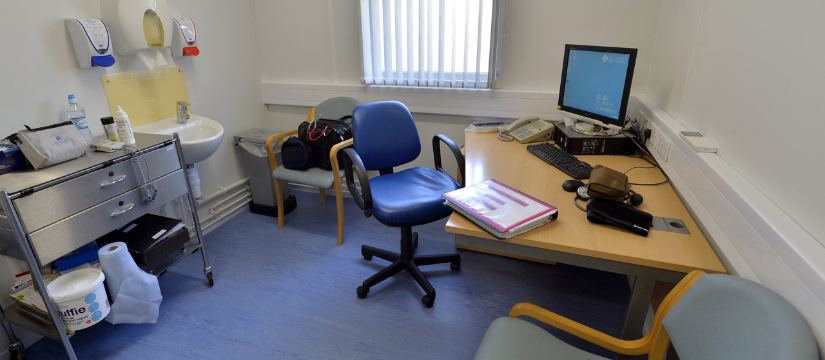In today’s ever-evolving healthcare landscape, the need for flexible and efficient spaces is paramount. Portable cabins have emerged as versatile solution, offering numerous benefits for the healthcare industry. From temporary clinics and medical facilities to mobile testing centers and modular hospitals, these portable structures have revolutionized healthcare delivery. In this blog post, we will delve into the various uses of portable cabins in the healthcare industry, highlighting their significance and the advantages they bring to medical professionals, patients, and communities.
1- Temporary Clinics and Consultation Rooms:
Portable cabins provide an ideal solution for setting up temporary clinics and consultation rooms. They can be quickly installed on-site, allowing healthcare providers to deliver care in areas with limited infrastructure or during emergency situations. Portable cabins can be equipped with medical equipment, furniture, and necessary amenities, creating a comfortable environment for patients to receive medical services.
2- Mobile Testing and Vaccination Centers:
In the face of outbreaks or community health initiatives, portable cabins serve as mobile testing and vaccination centers. These structures can be easily transported to various locations, enabling healthcare professionals to reach remote areas or densely populated regions efficiently. Portable cabin offer designated spaces for conducting tests, administering vaccines, and managing patient flow, ensuring a streamlined and organized process.
3- Modular Hospitals and Emergency Units:
During times of crisis or when additional healthcare facilities are needed, portable cabins can be transformed into modular hospitals or emergency units. These versatile structures can be interconnected to create larger medical complexes, accommodating patient wards, operating theaters, isolation units, triage areas, and administrative spaces. The flexibility of portable cabins allows for rapid scalability and adaptability, facilitating prompt responses to healthcare demands.
4- Rehabilitation Centers and Treatment Facilities:
Portable cabins are also utilized as rehabilitation centers and treatment facilities. They can be customized to provide specialized spaces for physical therapy, rehabilitation sessions, counseling, and other therapeutic interventions. The compact yet functional design of portable cabins makes them suitable for delivering personalized care while maintaining privacy and comfort for patients.
5- Training and Education Centers:
In addition to clinical uses, portable cabins serve as training and education centers for healthcare professionals. These structures can be transformed into classrooms, simulation labs, and conference rooms, facilitating hands-on training, workshops, and knowledge-sharing sessions. Portable cabins provide a conducive learning environment that promotes professional development and fosters collaboration within the healthcare community.
Conclusion:
Portable cabin manufacturers have revolutionized the healthcare industry by providing healthcare professionals with flexible, efficient, and adaptable solutions. These manufacturers offer a wide range of portable structures that cater to various healthcare needs, including temporary clinics, mobile testing centers, modular hospitals, and training facilities. With their versatility, ease of deployment, and customizable features, these portable cabins have become indispensable tools for enhancing healthcare infrastructure and expanding access to quality care. As the healthcare industry continues to evolve, portable cabin manufacturers will play a pivotal role in supporting healthcare professionals and improving the overall patient experience.


